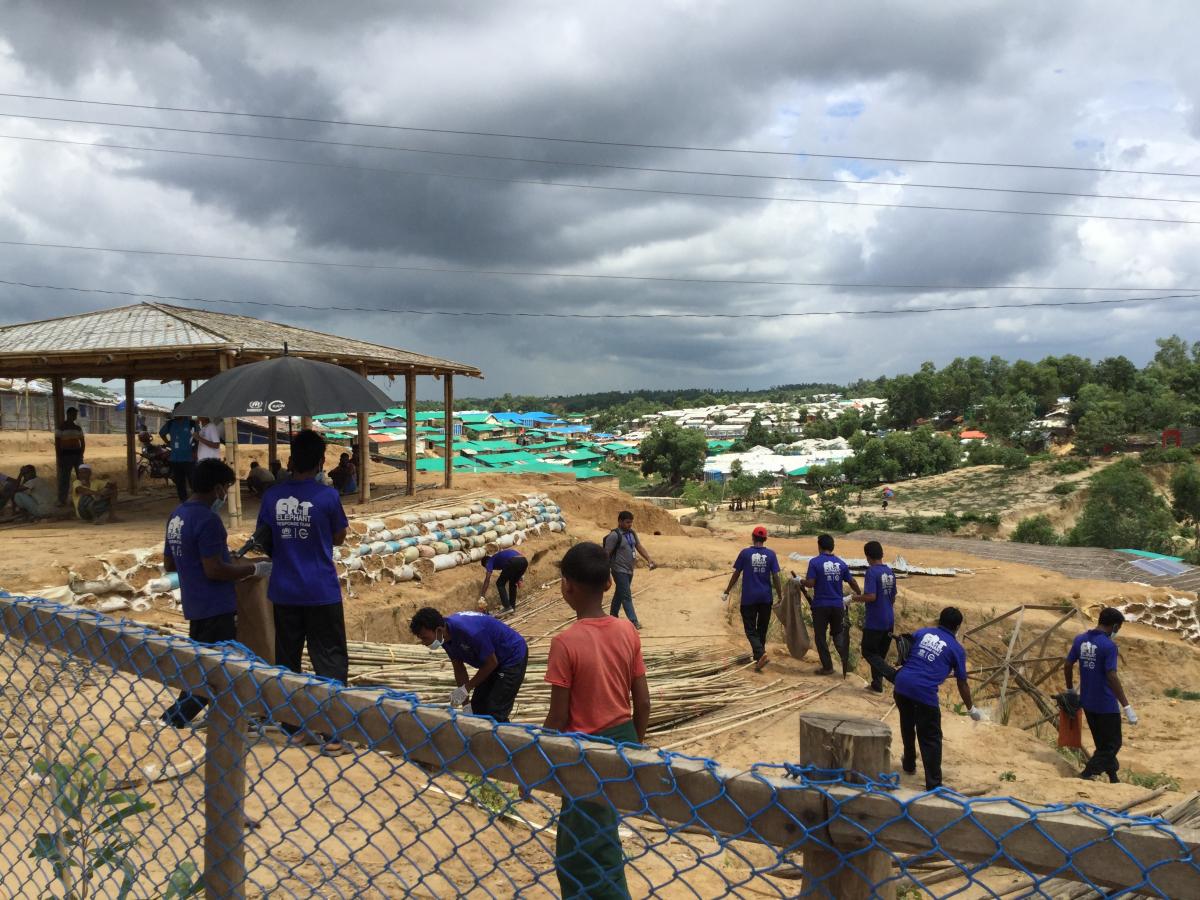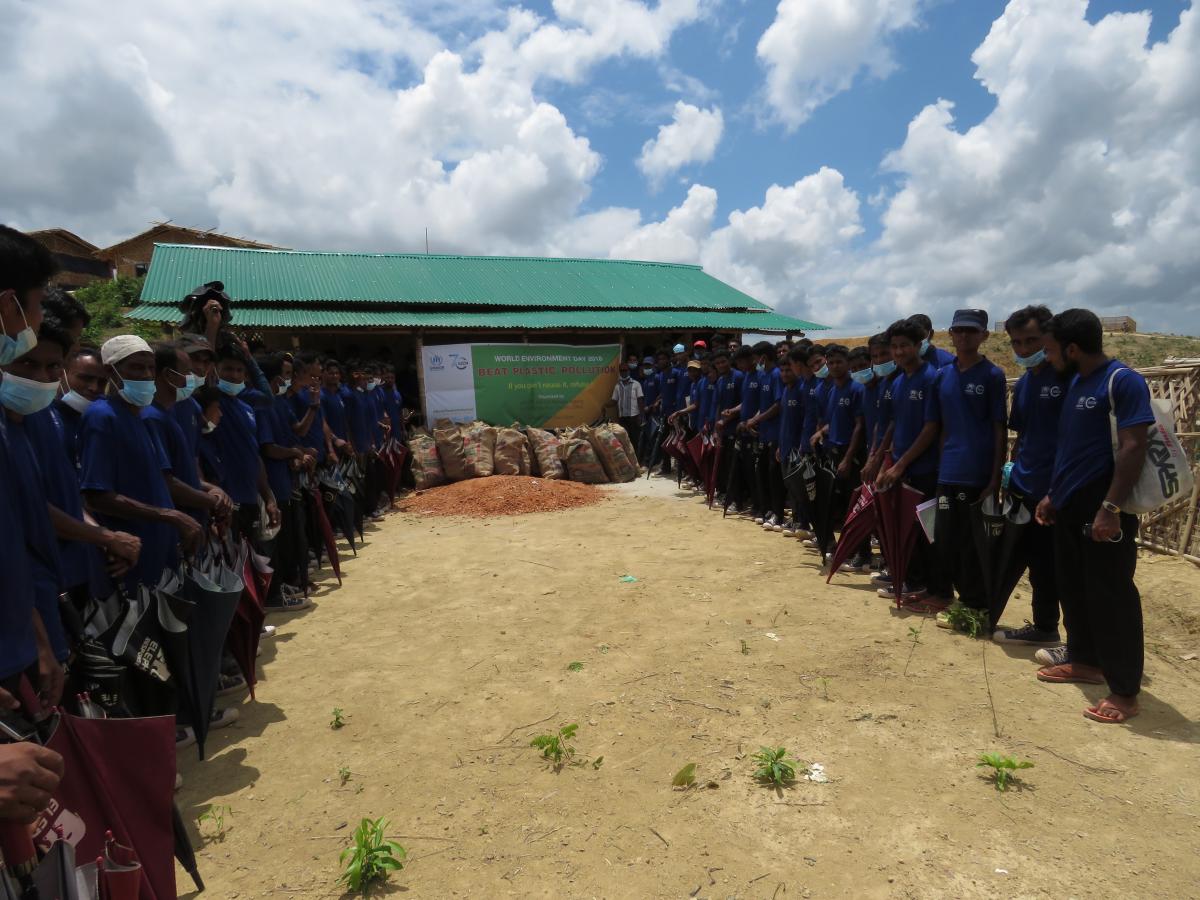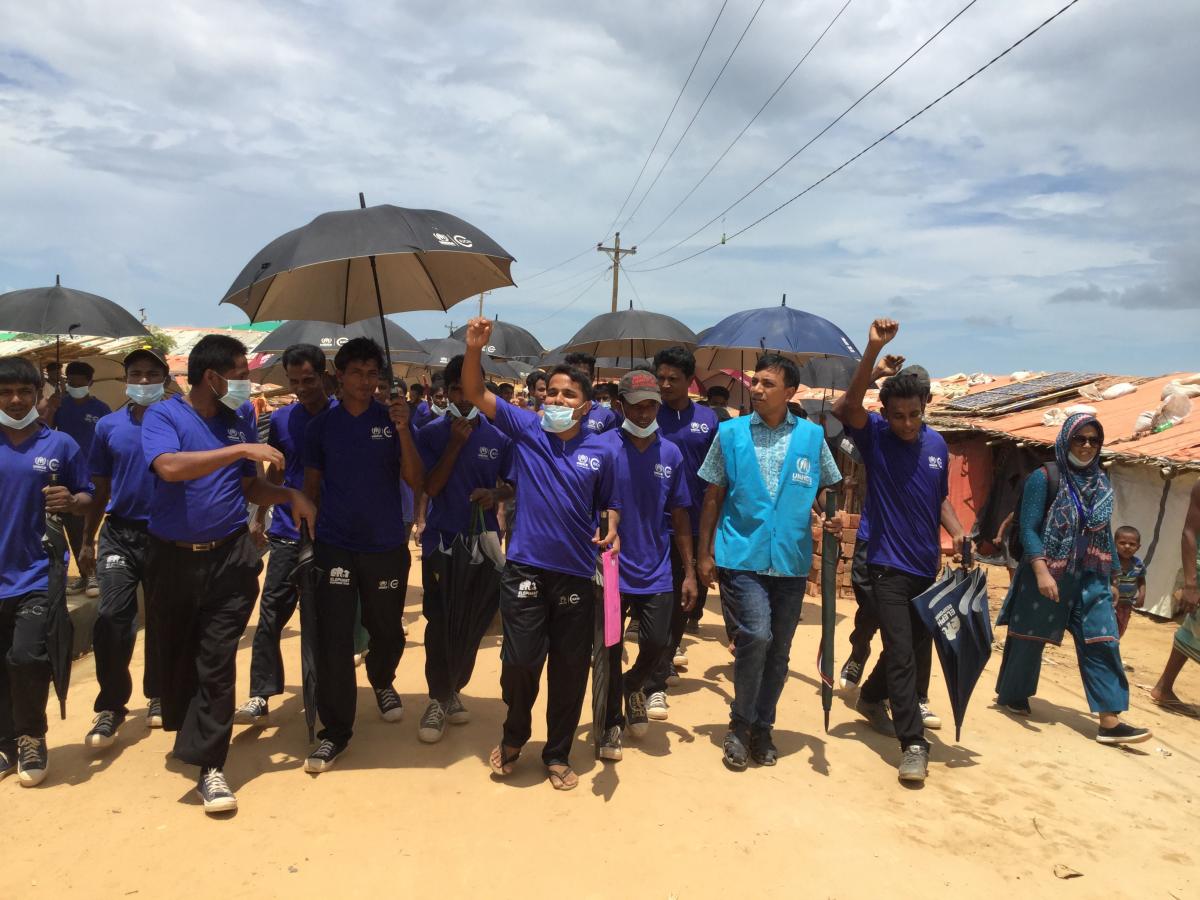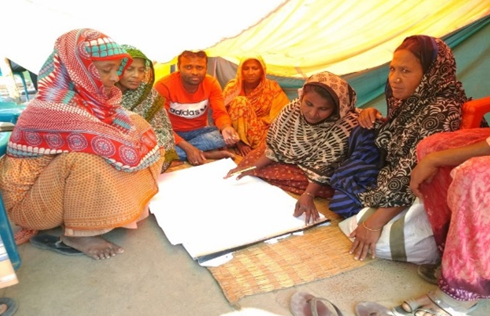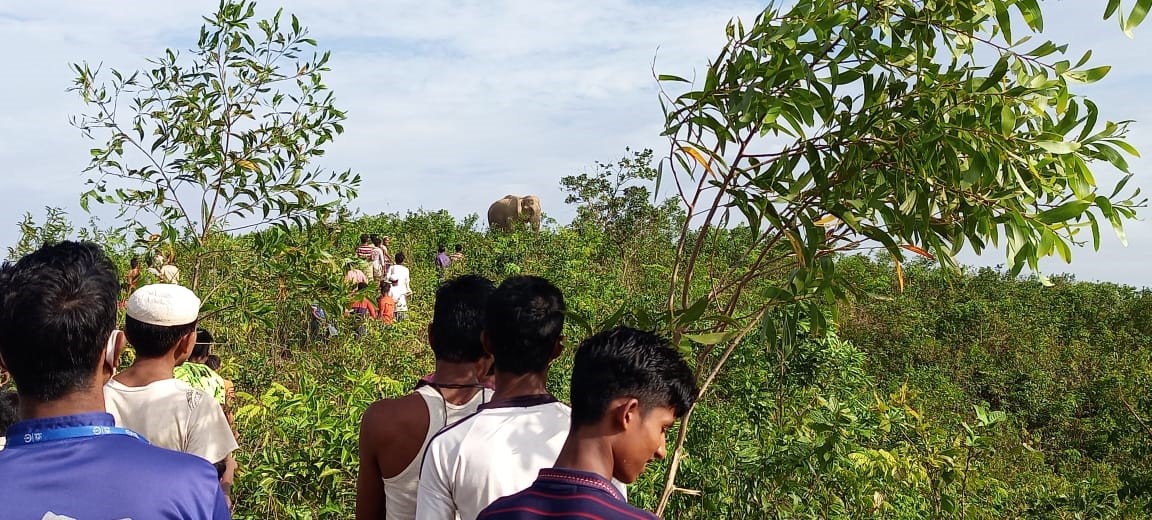World’s Largest Refugee Settlement celebrates World Environment Day 2018
With almost 900 thousand people, the refugee settlement in Cox’s Bazar, Bangladesh, is the largest in the world. Living a life full of uncertainties, Rohingya refugees celebrated World Environment Day 2018 with much enthusiasm and motivation.
To mark this year’s World Environment Day with the theme ‘Beat Plastic Pollution’, IUCN Bangladesh and UNHCR organised a plastic waste collection and disposal programme in the camp together with Rohingya volunteers with the aim of making the settlement plastic free.
Although many of the refugee camp residents depend on plastic products on a daily basis, most of the plastic is not disposed of properly.
“We can reuse some of the plastic items to store our food and water, but most of them are not reusable so we throw them outside our house,” said Musona Khatun, a resident of the refugee camp.
Plastic waste is building up and blocking the drainage system in and around the camps.
As Bangladesh awaits the monsoon, authorities have been relocating tens of thousands of camp dwellers to higher grounds, rejuvenating the drainage system of the camp, and building stronger makeshift houses. If not properly managed, plastic waste will continue creating serious problems in the rainy season.
The Kutupalong Refugee Camp is located in a corridor in Bangladesh that harbours 15% of the country's resident elephants. The Rohingya volunteers who took part in the plastic cleaning campaign were from the Elephant Response Teams (ERTs), which were formed in the recent months under an IUCN-UNHCR initiative to reduce human-elephant conflict in this camp and its neighbouring areas.
In addition to their regular role as protectors, these ERTs are now working together to increase environmental awareness among the refugee community. A few weeks ago, the ERT members took part in a rally on 22 May 2018 to celebrate the International Day for Biological Diversity.
“Before today, we did not know plastics could cause so much harm. Now that we are aware of it, we will try to reuse plastic materials and also dump the wastes in a proper place,” said ERT member Abdul Lotif while hunting for plastic waste with his teammates.
Ehsanul Hoque, Assistant Environment Officer of UNHCR Bangladesh, commended the ERT members for their effort in cleaning the camp area. “Plastic is harmful to us and is also a cause of environmental pollution," he said. "We should try to reuse the plastic materials or dispose of them in a proper dumping area."
At the end of the cleaning session, the ERT members held a rally with the slogan “Plastic ghuchabo, poribesh banchabo” (“Reduce plastic, save the environment”). At the end of the day, about 60 sacks full of plastic waste was carried away from the camp area and handed over to appropriate authorities for safe disposal and recycling.
“Marking World Environment Day in the camp showcases how people who have been living an uncertain life of refugee could be organised, motivated and trained to help their neighbours, protect the environment, and be a shining example to the world,” said Mohammad Abdul Motaleb, Project Manager of this IUCN-UNHCR initiative.
